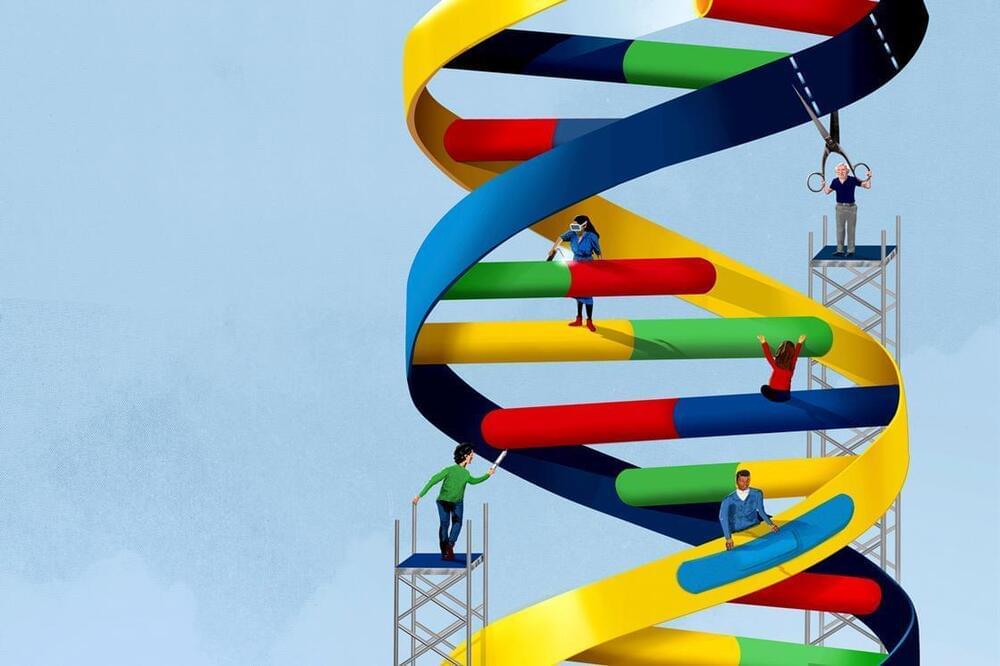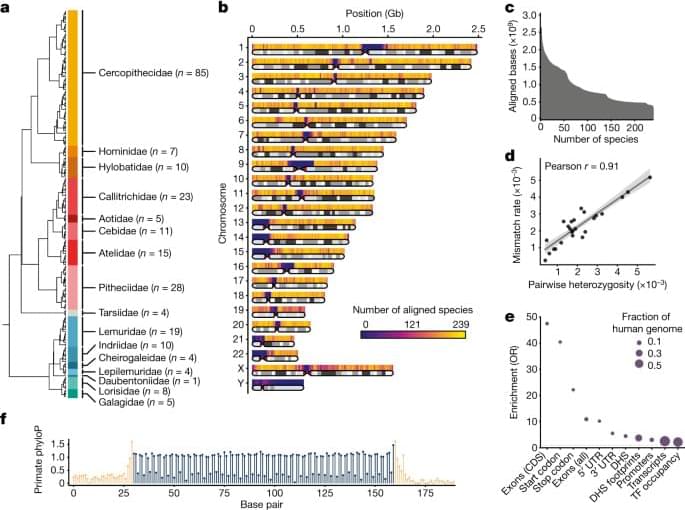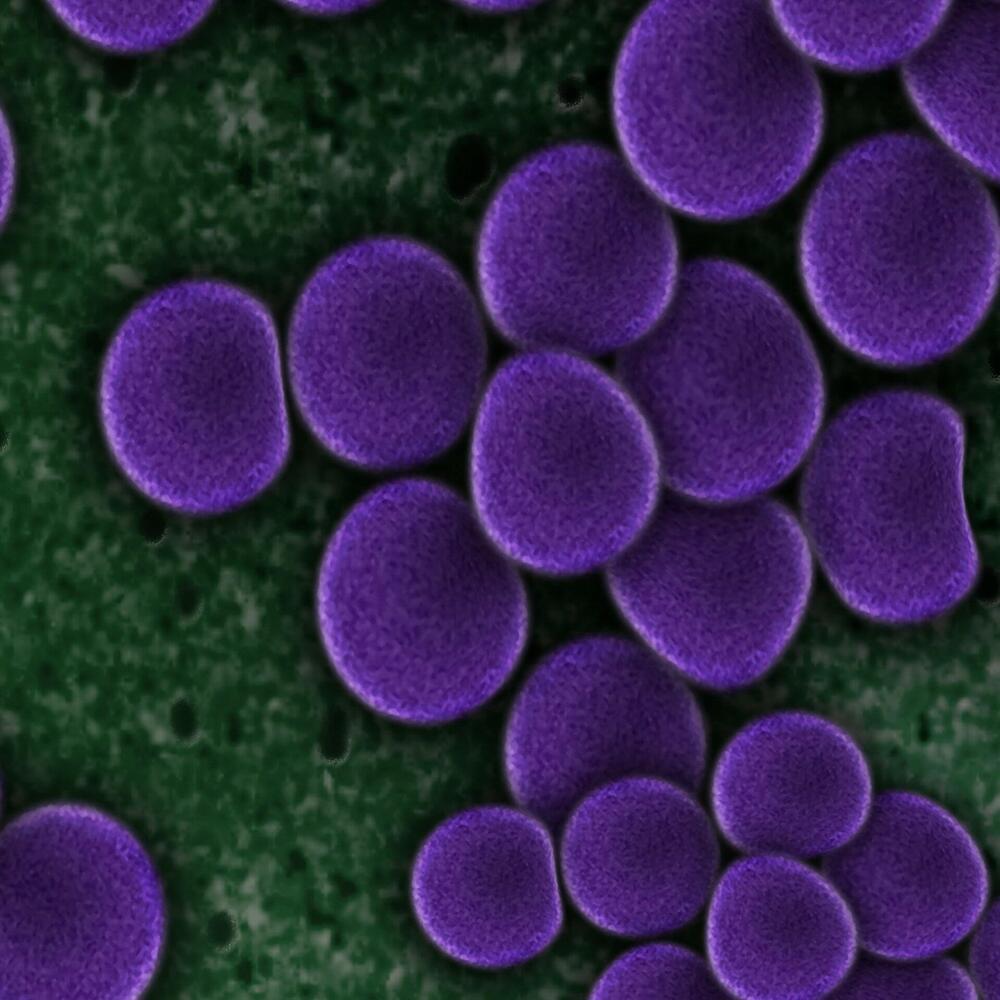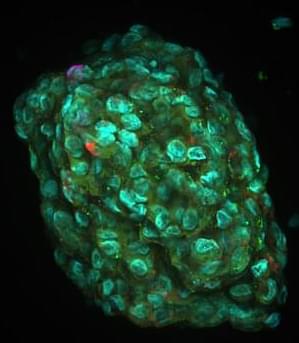Archive for the ‘biotech/medical’ category: Page 429
Dec 1, 2023
Afterlife hope with project launched to combine AI and DNA to revive loved ones
Posted by Shailesh Prasad in categories: biotech/medical, Ray Kurzweil, robotics/AI
Ray Kurzweil and a host of other ambitious scientists are trying to take major next steps with AI — the revival of the dead. Within three decades, he hopes to create a ‘dad bot’ in the flesh.
Dec 1, 2023
The first CRISPR cure might kickstart the next big patent battle
Posted by Paul Battista in categories: biotech/medical, genetics
Vertex Pharmaceuticals plans to sell a gene-editing treatment for sickle-cell disease. A patent on CRISPR could stand in the way.
Dec 1, 2023
Enterprise Knowledge: A Unifying Technological Vision for the Future of Radiology
Posted by Genevieve Klien in categories: biotech/medical, robotics/AI
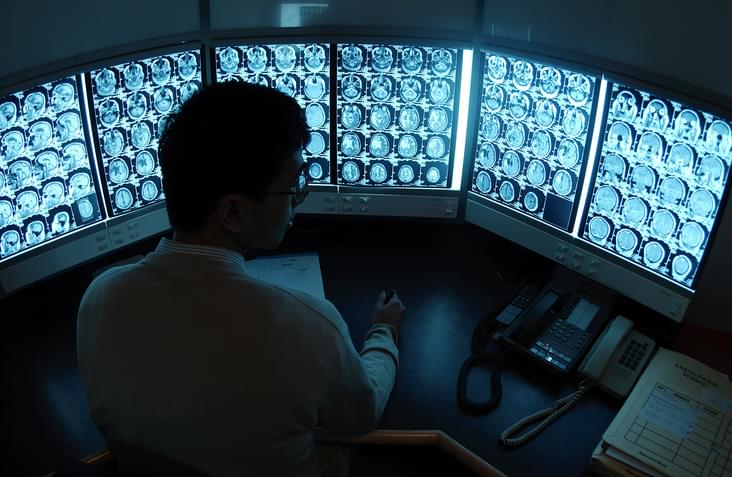
Additionally, GAI helps radiologists cross-reference comorbidities in a way that was not possible before. For instance, people with certain types of autoimmune arthritis have an increased risk of cardiovascular disease (atherosclerosis, hypertension, and type 2 diabetes). These conditions might seem unrelated, but if a CT scan reveals calcifications in the coronary arteries, GAI can facilitate informing the radiologist and treating physician of this important biomarker. These types of added value are not just consumer conveniences. As potentiators of clinical research and effectuators of episodes of care, they can save the lives of patients.
Leaning into the whole.
Dec 1, 2023
Cancer patients with opioid use disorder face obstacles to treatment
Posted by Shubham Ghosh Roy in category: biotech/medical
A cancer diagnosis can greatly disrupt treatment with methadone, a medication used to treat patients with opioid use disorder, according to a perspective piece published in the New England Journal of Medicine by University of Pittsburgh researchers.
Through the lens of a specific patient treated with methadone for many years and later diagnosed with head and neck cancer, the authors discuss how segregating methadone distribution from general medical care is problematic and emphasize the need to integrate opioid use disorder treatment and improve patient access.
Before his cancer diagnosis, the patient was afforded a 28-day supply of take-home methadone doses, which he self-administered and, per clinic and federal regulations, returned to the clinic every 28 days for monitoring and refills.
Dec 1, 2023
Common Blood Pressure Drug Increases Lifespan, Slows Aging in Animals
Posted by Genevieve Klien in categories: biotech/medical, food, life extension
The hypertension drug rilmenidine has been shown to slow down aging in worms, an effect that in humans could hypothetically help us live longer and keep us healthier in our latter years.
Previous research has shown rilmenidine mimics the effects of caloric restriction on a cellular level. Reducing available energy while maintaining nutrition within the body has been shown to extend lifespans in several animal models.
Whether this translates to human biology, or is a potential risk to our health, is a topic of ongoing debate. Finding ways to achieve the same benefits without the costs of extreme calorie cutting could lead to new ways to improve health in old age.
Dec 1, 2023
Molecular movie captures DNA repair from start to finish
Posted by Dan Breeden in category: biotech/medical
An international team of researchers has used time-resolved ultrafast crystallography to follow the progress of DNA repair by a photolyase enzyme. The work is ‘the first structural characterisation of a full enzyme reaction cycle,’ says Manuel Maestre-Reyna, who led the research.
Photolyases repair DNA damage caused by ultraviolet light in bacteria, fungi, plants and some animals including marsupials. Humans and other mammals don’t contain these enzymes, but we too incur light-induced damage. One common outcome is the formation of cyclobutane pyrimidine dimers (CPDs), where two adjacent pyrimidine bases (thymine or cytosine) fuse together via a four-membered cyclobutane ring. ‘CPD formation is the main cause of skin cancer, and sunburnt skin always contains CPD lesions’, says Maestre-Reyna, a biochemist at the Institute of Biological Chemistry in Taipei, Taiwan.
Dec 1, 2023
Identification of constrained sequence elements across 239 primate genomes
Posted by Dan Breeden in category: biotech/medical
Whole-genome alignment of 239 primate species reveals noncoding regulatory elements that are under selective constraint in primates but not in other placental mammals, that are enriched for variants that affect human gene expression and complex traits in diseases.
Dec 1, 2023
New model allows for learning and prediction of microbial interactions
Posted by Paul Battista in categories: biotech/medical, health
A tiny but prolific world of microbes encompasses everything around us, both inside and out. Microbiomes, which are comprised of diverse communities of microbes, play a pivotal role in shaping human health, yet the intricacies of how different microbial compositions influence our well-being remain largely unknown.
In a recent study published in Proceedings of the National Academy of Sciences, researchers at the University of Illinois Urbana-Champaign describe a new framework they have created to predict how species within microbiomes interact with each other to create unique compositions.
“Microbes can be used in medicine, aka ‘bugs as drugs,’ and these microbial therapeutics hold the possibility of being the answer to many of the diseases we face today,” said Shreya Arya, a graduate student in the O’Dwyer lab.
Dec 1, 2023
Personalized Cancer Medicine: Humans make Better Treatment Decisions than AI
Posted by Natalie Chan in categories: biotech/medical, genetics, robotics/AI
Limits of large language models in precision medicine. Treating cancer is becoming increasingly complex, but also offers more and more possibilities. After all, the better a tumor’s biology and genetic features are understood, the more treatment approaches there are. To be able to offer patients personalized therapies tailored to their disease, laborious and time-consuming analysis and interpretation of various data is required. Researchers at Charité — Universitätsmedizin Berlin and Humboldt-Universität zu Berlin have now studied whether generative artificial intelligence (AI) tools such as ChatGPT can help with this step. This is one of many projects at Charité analyzing the opportunities unlocked by AI in patient care.
If the body can no longer repair certain genetic mutations itself, cells begin to grow unchecked, producing a tumor.
The crucial factor in this phenomenon is an imbalance of growth-inducing and growth-inhibiting factors, which can result from changes in oncogenes — genes with the potential to cause cancer — for example.





